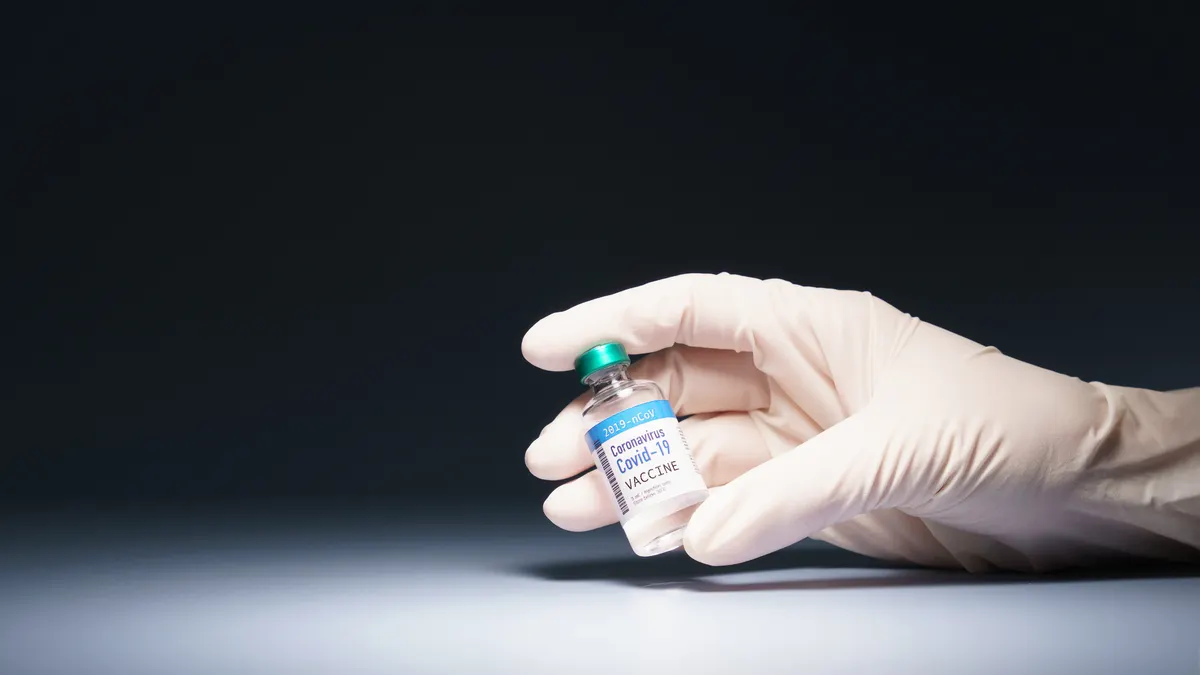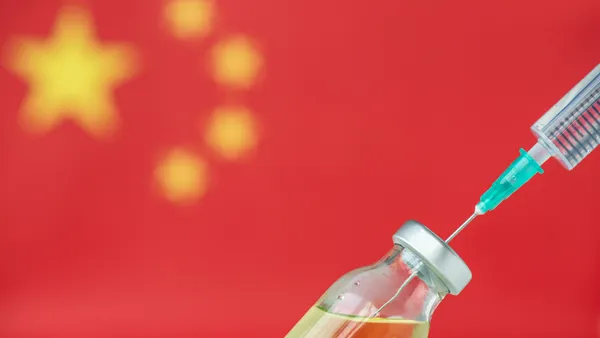The journey to new Alzheimer’s disease drugs has been long, grueling and littered with pitfalls. Through failed trials and regulatory scrutiny, several new drugs promise concrete — albeit incremental — treatment for the devastating disease.
Along the way, those drugs, such as Eisai and Biogen’s Leqembi and Eli Lilly’s Kisunla, and now a newly cleared blood test for signs of Alzheimer’s, have paved the road for a potential gamechanger in years to come: a vaccine.
Two proteins — amyloid beta and tau — are believed to be at the heart of an Alzheimer’s diagnosis. Last week, the new blood test from diagnostics company Fujirebio Diagnostics became the first cleared by the FDA to signal the presence of amyloid plaques. While tests have been available to researchers in the past, the clearance could open the door to more patients.
That capability could bring new treatment options to potentially stop the disease before symptoms arise, said Roman Kniazev, CEO of the biotech Nuravax, which is in the early stages of Alzheimer’s vaccine development.
“It’s a real breakthrough,” Kniazev said. “Investors and the overall community can’t wait years and decades to show clinical effect based on a real transition to Alzheimer’s disease — surrogate markers of efficiency need to be used widely.”
While recent Alzheimer’s approvals have been encouraging for vaccine makers like Nuravax and others, development is still in the early stages. But the science is promising and could herald a new era in treatment before dementia takes hold.
A next step
Nuravax’s vaccine candidate, called Duvax, is designed to target amyloid and tau proteins before they cause irreparable damage in the brain. While the company, which got its start in 2021, is preparing to launch human trials, Kniazev is convinced a vaccine approach is particularly suited for Alzheimer’s because it can be used earlier in a patient’s journey with minimal side effects.
“Monoclonal antibodies aren’t fully safe."

Roman Kniazev
CEO, Nuravax
Monoclonal antibodies like Leqembi and Kisunla, on the other hand, have led to complications of brain swelling due to inflammation, known as ARIA. And while both approaches are considered immunotherapy with the ultimate goal to deliver antibodies that tag disease-causing proteins for elimination by the immune system, they do so in different ways.
“Monoclonal antibodies aren’t fully safe,” Kniazev said. “We had several monoclonal antibodies in the pipeline, but we put them on the shelf because we decided to focus on active vaccines as a safe and immunogenic solution and the only way to break through.”
Unlike the approved monoclonal antibodies, a vaccine approach could potentially be safer, Kniazev said. And a vaccine could nip Alzheimer’s in the bud in patients with elevated levels of amyloid or tau proteins who haven’t yet advanced to symptoms such as memory loss.
“We target patients who haven’t crossed the cognitive impairment line — healthy people — but we can identify the proteins in the blood and show that they are [in the] preclinical stage,” Kniazev said.
Nuravax isn’t alone in developing an Alzheimer’s vaccine. Partners AC Immune and Takeda are also developing an “active immunotherapy,” spurring the immune system to create antibodies that can fight amyloid plaques before they become problematic.
Also in the race is Vaxxinity, despite delisting from public markets had a mid-stage candidate targeting amyloid as of last year, and Prothena, with a phase 2 candidate targeting both amyloid and tau.
As for Nuravax’s long-term goals, Kniazev isn’t shy about the company’s aims — its expertise is in vaccine development, not commercial and marketing, so if Duvax comes close to the regulatory finish line, a larger company is more likely to lead global access.
“[Big Pharma] is, ultimately, our customer,” Kniazev said. “We developed something to pass it to pharma companies who are able to distribute it around the world.”











